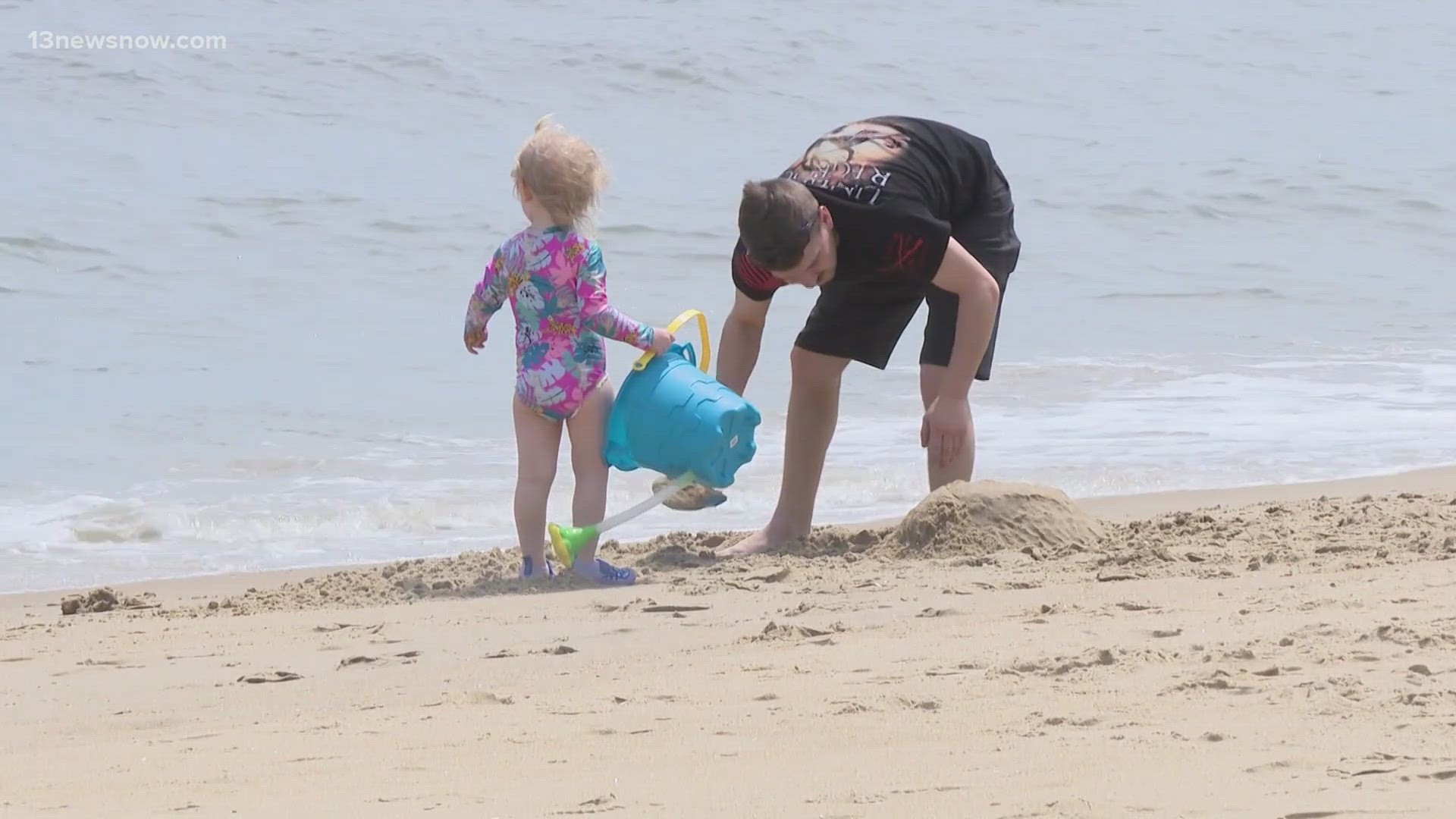VIRGINIA BEACH, Va. — Officials on the Outer Banks and in Virginia Beach are warning families about the dangers of digging deep holes at the beach after a local teen died over the weekend.
Chief of the Virginia Beach Lifesaving Service Tom Gill said digging a small hole on the beach may not be a big deal, but if you dig deep enough in dry sand, you could put yourself in danger.
“Digging holes at the beach seems like an absolute no brainer. Bring your shovels and your buckets, but there is absolutely a limit,” Gill said.
“As was proven this weekend in Hatteras, and has been proven multiple times – pretty much every year you’ll hear three or four or five of these stories – digging major holes in sand that you can put your body into is deadly."
A dune collapsed into a hole Saturday, burying 18-year-old Chase Conyers under several feet of sand at Cape Hatteras National Seashore. Family and friends searched for the teen and found him buried.
A spokesman for the National Park Service in North Carolina said officials believe “the teen had been digging holes in the same area as the partially collapsed dune.”
Nags Head mayor Ben Cahoon called the incident a “tragedy.” He said people digging holes on the Outer Banks is not uncommon.
“The dry sand is dangerous, and the dry sand is where you can dig a deeper hole,” Cahoon said.
“If you’re down in the wet sand, you’re going to dig a hole until you hit water and then you’re kind of stopped at that point. But if you get up above the water line, you get up in the higher part of the beach and the dry part of the dune, you can dig a really significant hole before you hit the water table.”
Cahoon said the Outer Banks has rules against digging holes of a certain size and leaving holes unattnded, and there's a penalty if you don’t fill holes back in.
“One of the issues we’re up against in Nags Head and other towns is it’s only a civil penalty, so there’s a small fine related to that,” Cahoon said.
“What we’ve asked the North Carolina legislature to do is to make that a criminal penalty, a misdemeanor, but still a criminal penalty. It gives us a stronger message to folks who might be digging a hole."
There are also rules in place at the Virginia Beach Oceanfront.
“Our protocol here in Virginia Beach is for people not to dig holes past knee-deep of the smallest person that might get into it,” Gill said.
He says it's pretty typical to see people digging holes in the sand in the Resort City.
“You just see some people digging holes, and it’s typically not a big deal, but then all of a sudden you’ll see something once in a while, do a double take on it, ride over and see people are waist deep, chest deep, up to their head,” Gill said.
And the sand presents a unique danger.
“Similar to an avalanche in the snow ... . It’s going to be the suffocation that’s going to kill you, and it's the same thing with the sand. And the thing that’s worse about the sand is, it’s just so thin and it’s so hard to remove.”
In a statement about Conyers passing over the weekend, the superintendent of National Parks of Eastern North Carolina urged visitors not to dig deep holes on the beach due to the danger they present to beachgoers and emergency response staff.
Family members of Conyers have set up an online fundraiser to cover funeral expenses.

